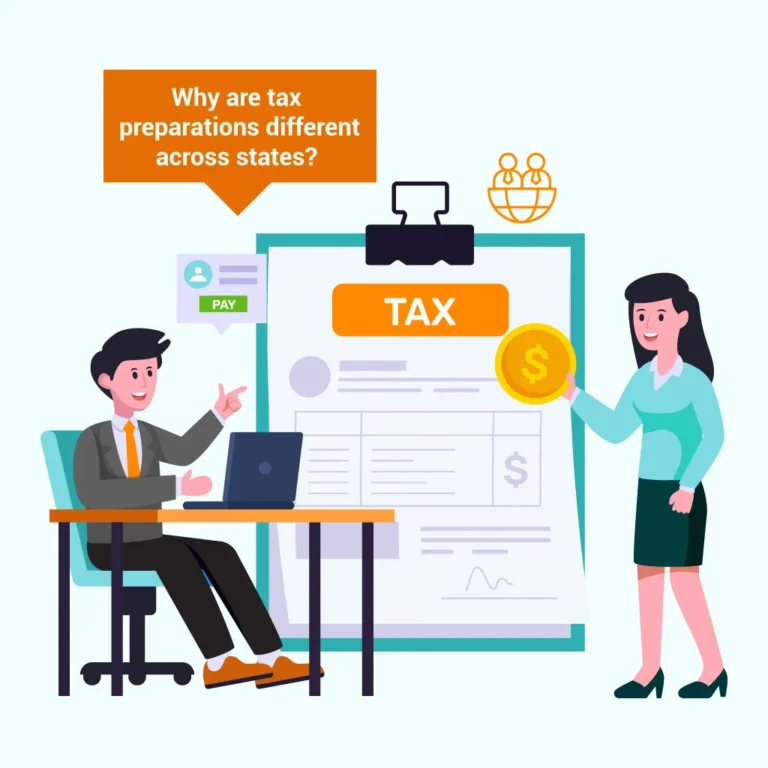Navigating the complexities of auto loan taxation can often lead to the pivotal question: “Is car loan interest tax deductible?” This query is particularly relevant for individuals and business owners who finance their vehicles and want to understand how this impacts their financial planning and tax obligations. Auto loan interest and its potential deductibility are not just a matter of simple arithmetic; they intertwine with various tax laws and regulations, making it essential for taxpayers to grasp its intricacies. This blog aims to demystify the subject, clearly understanding how car loan interest works and under what circumstances it can influence your tax returns.
Understanding whether car loan interest is tax deductible involves delving into different scenarios based on vehicle usage and the taxpayer’s employment or business status. For many, the ability to deduct car loan interest could mean significant financial relief, especially when the vehicle is used for business purposes. However, for personal-use vehicles, the rules differ, adding layers to decision-making when financing a vehicle. This blog aims to shed light on these scenarios, providing clarity and guidance to those navigating the world of auto loans and taxes.

What Is Car Loan Interest?
Car loan interest is the extra amount you pay to the lender in addition to the principal amount of the loan. This interest is calculated based on the interest rate and the principal amount of your auto loan. Understanding how it accrues is crucial for determining its potential tax implications.
This interest is a critical component of your overall financial commitment when choosing to finance a car, truck, or any other vehicle type. When you obtain an auto loan, you agree to pay back the principal amount – the actual cost of the vehicle – and an extra amount calculated as interest, compensating the lender for the risk and opportunity cost of lending you the money.
The structure of car loan interest can vary significantly based on your loan type. Some car loans, particularly promotional offers, might come with a 0% APR (annual percentage rate), meaning you’re only responsible for repaying the principal.
However, auto loans charge interest more commonly through simple or precomputed compound interest models. With a car loan with a simple interest rate, your monthly payment is divided into two parts: one part goes towards paying off the interest owed, and the other goes towards reducing the principal amount.
As you progress through the loan term, the portion of your payment dedicated to the principal typically increases, gradually reducing the interest component. This dynamic nature of loan repayment underscores the impact of interest on the total cost of vehicle ownership.
Moreover, since most car loans are secured – with the vehicle itself as collateral – their rates of interest are often more favorable than unsecured loans. The security provided by collateral typically results in lower risk for lenders, reflected in the lower interest rates for borrowers.
Despite this, the cumulative effect of paying auto loan interest amount over an extended period can be substantial, leading many car owners to question the possibility of offsetting these costs through tax deductions. Understanding the implications of car loan interest, in terms of monthly payments and the context of overall financial planning and tax considerations, is crucial for making informed decisions about vehicle financing.

Is Car Loan Interest Tax Deductible?
Generally, auto loan interest is not tax deductible for personal use vehicles. However, there are exceptions. If you use your car for business, a portion of the interest may be deductible. The key is determining the percentage of time the vehicle is used for business versus personal use.
Determining whether car loan interest is tax-deductible depends largely on the usage of the vehicle and your employment status. The interest paid on a car loan is not deductible for the average employee who uses their car primarily for commuting to and from a standard job.
This lack of deductibility stems from the fact that commuting is generally considered a personal expense. Therefore, if you’re a W-2 employee using your car for personal commuting, the IRS does not allow the deduction of car loan interest on your tax return.
Personal Vehicle
However, the scenario shifts significantly for business owners and self-employed individuals. If you’re an entrepreneur, a freelancer, an independent contractor, or a small business owner, the interest on your car loan could be partially or fully deductible. This is because the vehicle is used for business purposes, and as such, the expenses associated with its use can be considered business expenses.
The deductibility is contingent on the extent of business use. For instance, if you use your car 70% for business and 30% for personal activities, you can typically deduct 70% of the interest paid on the car loan. This deduction is reported on Schedule C of your tax return.
Business Vehicle
In contrast, if the vehicle is used exclusively for business purposes, as may be the case with vehicles financed through commercial or business auto loans, you might be eligible to deduct 100% of the interest. This full deduction is particularly relevant for vehicles purchased under a business name and used solely for business operations.

How Do You Write Off Car Loan Interest?
To write off car loan interest for a vehicle used for business, you must itemize and calculate the percentage of business use. This deduction is claimed on Schedule C for business owners or Schedule A for employees who itemize deductions.
The Actual Expenses Method and the Standard Mileage Rate Method are two primary methods for claiming auto loan interest deductions. Each method offers distinct approaches and benefits, depending on the extent of your vehicle’s business use and the nature of your operating expenses.
Actual Expenses Method
The Actual Expenses Method allows a more comprehensive approach to deducting car expenses from your taxes, including car loan interest. This method is particularly beneficial if you use your vehicle extensively for business purposes.
Under this system, you can deduct various costs directly related to the operation of your car for business. These expenses include depreciation (subject to limits), licenses, registration fees, fuel, lease payments, tolls, garage rental, insurance, repairs, parking fees, tires, and the interest on your car loan. The catch is that you can only deduct the portion of these expenses that correlates to your business use.
For instance, if 50% of keeping detailed records of all these expenses throughout the year is essential interest, are deductible. Keeping detailed records of all these expenses throughout the year is essential to substantiate your claims.
The Actual Expenses Method can be particularly advantageous for those who are self-employed. It offers the flexibility to account for high business-related car expenses, which can significantly reduce taxable income.
However, this method demands meticulous record-keeping and an understanding of the various limits and rules imposed by the IRS, as outlined in IRS Publication 463. It’s advisable to consult with a tax professional to ensure compliance and maximize this method’s benefits.
Standard Mileage Rate Method
The Standard Mileage Rate Method is an alternative that simplifies the process of deducting car expenses, including loan interest. This method is best suited for those who use their vehicle for business but don’t incur high operating costs. To use this method, you must track the miles driven for business purposes.
For each business mile driven, you apply the IRS-standard rate. For example, in 2022, the rate per mile was 58.5 cents (January 1 to June 30) and 62.5 cents (July 1 to December 31). This rate is designed to cover not just the cost of fuel but also depreciation, repairs, and other vehicle operating expenses.
However, the method has its limitations. When you opt for this method, you cannot claim individual car expenses such as gas, oil, and registration fees, and most importantly, you cannot separately deduct the loan interest as you can with the Actual Expenses Method. The only additional deductions allowed are for tolls, parking fees (business-related), and personal property taxes on the vehicle.
It’s also important to note that once you choose the rate for a car in its first year of business use, you must continue with this method or switch to the Actual Expenses Method in subsequent years. This method is often preferred for its simplicity in record-keeping and calculation, making it a popular choice for many business owners and self-employed individuals.

Documentation to Keep
Claiming deductions on your taxes, especially something as specific as car loan interest, requires meticulous documentation. Keeping comprehensive records not only supports your claims but also prepares you for any inquiries or audits from the IRS.
Log of Business Trips
One of the most critical pieces of documentation is a detailed log of all business trips taken in the vehicle. This log should include dates, destinations, the purpose of each trip, and, most importantly, the odometer readings at the start and end of each trip. This detailed record-keeping is vital for substantiating the percentage of vehicle use that is for business, which directly impacts the amount of interest you can deduct. A consistent and up-to-date logbook is a strong piece of evidence in your favor, should your tax filings come under scrutiny.
Car Loan Payment Records
Equally important are the records of your car loan payments, specifically highlighting the interest paid. These records directly prove the interest expenses you are claiming as a deduction. It’s advisable to keep all loan statements and payment receipts showing the breakdown of principal and interest. In cases where this breakdown isn’t clear, a letter or statement from the lender detailing the interest portion of your payments for the tax year can be extremely helpful.
Ancillary Expense Receipts
While parking fees and tolls aren’t directly deductible under the auto loan interest category, keeping these receipts can bolster your overall claim of business use of the vehicle. When added to your business trip log, these ancillary expenses paint a clearer picture of your vehicle’s usage for business purposes. They can be particularly useful in supporting your claims of business mileage and the associated proportion of car loan interest deductible.

Pros and Cons of Car Loan Interest Tax Deductions
When claiming car loan interest as a tax deduction, there are several factors to consider.
Pros
- Recovering Vehicle Costs: One of the primary advantages of claiming car loan interest deductions is the potential to recover a portion of the money spent on your vehicle throughout the year. This can be especially beneficial for those who use their cars significantly for business purposes.
- Advantages of the Actual Expenses Method: If you opt for the Actual Expenses Method and use your car for a typical amount of business driving, you may enjoy a larger tax break. This method allows you to account for all the car-related expenses, offering more opportunities to reduce your taxable income.
- Benefits of the Standard Mileage Rate Method: For those who use their vehicle heavily for business, the Standard Mileage Rate Method can be more advantageous. It simplifies the record-keeping process and can result in a substantial tax break based on the sheer volume of business miles driven.
Cons
- Record-Keeping Requirements: A significant drawback of deducting car loan interest is the necessity of meticulous record-keeping. Tracking mileage and related expenses can be time-consuming and requires consistent effort throughout the year.
- Challenges with the Actual Expenses Method: This method demands detailed tracking of all vehicle-related expenses, not just the mileage. It can become quite labor-intensive, especially for those who have a high volume of vehicle use both for business and personal purposes.
- Limitations of the Standard Mileage Rate Method: While simpler, the Standard Mileage Rate Method may offer a smaller tax break for those who don’t drive frequently for business. Additionally, it requires diligent tracking of all business versus personal mileage, which can be challenging if the vehicle is used extensively for both.
Final Words
When addressing the question, “Is car loan interest tax deductible?” it’s important to understand the nuances involved. Generally, car loan interest is not deductible for vehicles used solely for personal purposes. However, if you use your vehicle for business, you may be eligible for significant tax deductions on the interest paid. This aspect of tax planning is particularly advantageous for business owners and self-employed individuals. To fully capitalize on these deductions and ensure compliance with tax laws, it’s advisable to consult with a tax professional.
For more insights and detailed explanations on various financial topics, we invite you to visit our blog at EduCounting. Discover a wealth of resources and expert advice to guide you through your financial journey. Join our course to get the basics of investing, which focuses on stocks and bonds.
FAQs
What vehicle expenses are tax deductible?
Vehicle expenses that are tax deductible include the business portion of expenses like depreciation, licenses, registration fees, gas, oil, tolls, lease payments, insurance, garage rental, parking fees, repairs, tires, and car loan interest. The deductibility is based on the percentage of the vehicle’s use for business.
Can you tax write off a financed car?
Yes, you can tax write off a financed car, but only the business uses a portion of the car loan interest and other related expenses. The deductibility depends on whether the vehicle is used for business purposes and to what extent.
Can I write my car off on my taxes?
You can write off your car on your taxes if used for business purposes. The extent to which you can write it off depends on the percentage of its use for business, and you must keep detailed records, including a log of business trips and car loan payment records.
How much interest can you deduct from taxes?
The amount of interest you can deduct from taxes depends on the percentage of your car’s use for business purposes. For example, if you use your car 70% for business, you can typically deduct 70% of the interest paid on the car loan. This is calculated using either the Actual Expenses Method or the Standard Mileage Rate Method.









